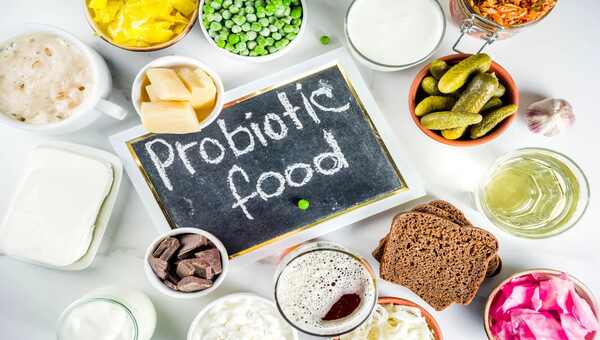How to Support Your Digestive Health with Probiotic Foods

The adage “you are what you eat” holds when it comes to digestive health. A balanced diet not only provides essential nutrients but also influences the delicate ecosystem of your gut. Probiotic foods, rich in beneficial bacteria, are gaining prominence for their role in promoting optimal digestion and overall well-being. In this blog post, we’ll delve into the world of probiotics, explore their impact on digestive health, and provide practical insights on how to incorporate probiotic-rich foods into your diet for a happier gut.
Understanding Probiotics and Digestive Health
Probiotics are live microorganisms, often referred to as “good bacteria,” that reside in your gut. They play a vital role in maintaining a balanced gut microbiome—the diverse community of microorganisms living in your digestive system. A harmonious gut microbiome is associated with improved digestion, enhanced nutrient absorption, strengthened immunity, and even positive effects on mental health.
The Balance of Gut Microbiome: Your digestive system is home to trillions of microorganisms, including both beneficial and harmful bacteria. The delicate balance between these microorganisms is crucial for optimal digestive health. Factors like diet, lifestyle, stress, and medication can influence this balance.
Read more: How to Support Your Heart Health with a Balanced Diet
How Probiotic Foods Support Digestive Health
- Restoration of Gut Balance: Consuming probiotic foods helps replenish and maintain a healthy balance of beneficial bacteria in the gut, which is essential for proper digestion and overall well-being.
- Improved Digestion: Probiotics aid in breaking down food and enhancing nutrient absorption. This can alleviate digestive discomfort and prevent issues like bloating, gas, and constipation.
- Strengthened Immunity: A significant portion of your immune system resides in the gut. Probiotic foods support immune function by maintaining a diverse and resilient gut microbiome. You should Boost Your Immune System During Allergy Season.
- Reduced Inflammation: An imbalanced gut microbiome can contribute to inflammation, which is linked to various digestive disorders. Probiotics help regulate inflammation and support a healthy gut lining.
- Mental Health Benefits: The gut-brain connection, often referred to as the “gut-brain axis,” highlights the impact of gut health on mental well-being. Probiotic foods have shown potential in reducing symptoms of anxiety and depression.
10 Practical Tips for Incorporating Probiotic Foods
Yogurt
Yogurt is one of the most well-known probiotic-rich foods. Opt for plain, unsweetened yogurt with live and active cultures. You can enjoy it as a snack, in smoothies, or as a topping for dishes.
Kefir
Kefir is a fermented dairy product similar to yogurt but thinner in consistency. It contains a diverse range of probiotic strains and is rich in nutrients. Drink it on its own or add it to your morning cereal.
Sauerkraut
Sauerkraut is fermented cabbage that is not only delicious but also packed with probiotics. It’s a great addition to salads, sandwiches, or as a side dish.
Kimchi
This traditional Korean dish consists of fermented vegetables, primarily cabbage and radishes. Kimchi is known for its bold flavors and probiotic content. Use it as a condiment or a side dish.
Kombucha
Kombucha is a fermented tea beverage with a tangy taste. It’s loaded with probiotics and is available in various flavors. Enjoy it as a refreshing drink.
Miso
Miso is a traditional Japanese seasoning made from fermented soybeans. It’s commonly used in soups and sauces and adds a rich umami flavor to dishes.
Tempeh
Tempeh is a fermented soy product that is rich in probiotics and protein. It can be used as a meat substitute in various recipes.
Pickles
Pickles made through the fermentation process, not vinegar, are a source of probiotics. Look for naturally fermented pickles without added preservatives.
Prebiotic Foods
In addition to probiotic-rich foods, consider consuming prebiotic foods that nourish the beneficial bacteria in your gut. These include garlic, onions, leeks, asparagus, bananas, and whole grains.
Rotate and Variety
Different probiotic foods offer distinct strains of bacteria. To maximize benefits, rotate various sources of probiotics and include a variety of fermented foods in your diet.
Read More : How to Incorporate Fermented Foods into a Plant-Based Diet
Conclusion
Supporting your digestive health through probiotic-rich foods is a delicious and holistic approach to well-being. By incorporating these foods into your diet, you can nurture a thriving gut microbiome that contributes to improved digestion, enhanced immunity, and even better mental health. Remember that consistency is key—small, mindful changes in your diet can have a profound impact on your overall digestive wellness. As you explore the world of probiotic foods, savor the flavors and relish the positive effects they bring to your body and mind.




